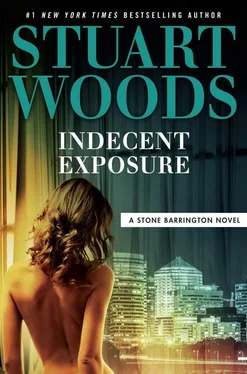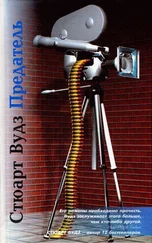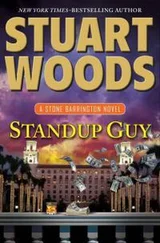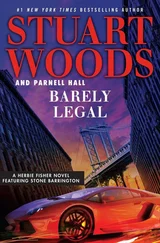“Who was the publicist for the Metropolitan Club?”
“The White House.”
“That explains why they didn’t call me.”
“Peter is calling you now. From here on in he’s going to need very sensitive handling. I’m told he knows every elected official in New York State, but the public is pretty much unaware of him. The wedding dinner was the kickoff for his relationship with the voters.”
“Got it.”
“He’s a young man with a very clean nose, not even a DUI–I know, I checked. He’s inherited old money from his father, Simon Rule, who died a couple of years ago. He’s got houses in Georgetown and the Hamptons and an apartment in New York.”
“I need addresses and phone numbers.”
“Get them from him. I e-mailed him your contact information ten minutes ago.”
“Got it. I’ll make him famous in stages — famous for what, he and I have to talk about.”
“He’s got a gorgeous new wife. That’s a start.”
“I thank you, Stone.”
“All right, why were you going to call me?”
“Not good news. I just got proofs of a piece in Just Folks , by that awful slut Gloria Parsons.”
“What is it this time?”
“She’s practically accusing you of murdering your wife.”
“What?”
“I’m not kidding, Stone, this is serious. She knows it’s not true, she knows she can’t prove it, but the rub-off from this could follow you for the rest of your life if it’s not handled right. I’d like to help.”
“What should I do?”
“You’re a lawyer — file a libel suit and ask a judge for an injunction to stop publication. That will scare the shit out of them, because by tomorrow it will have gone to press and it would cost them a ton of money to stop press, excise the story, and reprint. You’d better have a summons in their hands before noon. They’ve already sent proofs to tastemakers, people like me, and that will be damaging enough.”
“Can you e-mail me the proofs?”
“Sure I can. I should start writing a press release about your lawsuit, and it should hit the street seconds after you’ve served them. You’re the lawyer, but I suggest you name Gloria Parsons and her editor, Hazel Schwartz, in your suit. That will make them think about being personally liable, even after their lawyers tell them you can’t make it stick. You or your lawyer should also write an account of the circumstances surrounding the crime that can go out with my release and give the press something to quote. Include the names of any law enforcement people involved so that they can be called for statements. Shall we get started?”
“You’re damned right,” Stone said. “I’ll shoot you the account of the crime as reported by the New York Times . That pretty much covered everything.”
“I can dig that out myself from their website,” Faith said. “Get your lawsuit in gear.” She hung up.
Stone called Herbie Fisher, his protégé partner at Woodman & Weld, and explained the situation.
“I can dig up some libel boilerplate, fill in the names, and have them served in an hour,” Herbie said. “How much do you want to sue for?”
“I don’t know, a hundred million?”
“The magazine is owned by something called Fastbuck Publications, which is, in turn, owned by some conglomerate. I can’t remember which one, but I’ll find out and I’ll have them served simultaneously.”
“Go!”
Joan buzzed. “Dino on one.”
Stone pressed the button. “Hey.”
“Hey, dinner tonight? Patroon at seven-thirty?”
“Sure, but I’ve gotta go right now. Just Folks magazine is running a piece saying that I killed Arrington.”
“That’s horseshit,” Dino said.
“I know that, you know that, but now I have to let the world know it.”
“See you at seven-thirty, if you haven’t left the country.” Dino hung up.
Stone got on his computer, found the Times stories, printed them out, and read them. He was grateful to the newspaper of record for having been so thorough.
He heard a text come in: it was from Herbie: Fastbuck Publications is owned by St. Clair Enterprises. That ring a bell?
It certainly did; Stone, Mike Freeman, and Charley Fox, or Triangle Partnership, as they were known, had set up their company for the express purpose of buying all the assets of St. Clair Enterprises. He called Charley Fox.
“Hey, Stone, what’s up?”
“We own all the assets of St. Clair Enterprises, don’t we?”
“We do, lock, stock, and belt buckle.”
“Does that include a company called Fastbuck Publications?”
“Hang on, I’ll see.” There was heard the tapping of keys on a computer keyboard. “It does, and what do you know, I’ve got a get-acquainted lunch with their CEO this very day, name of Alfred Finch.”
“Holy shit, Charley,” he said. “There’s something I’d like you to hand to Mr. Finch when you meet him.”
“What’s that?”
“A libel suit.” Stone went on to explain, and they made a plan.
Alfred Finch sat in his hotel room and read the Stone Barrington piece. He loved it. They would get huge mileage out of this — thousands of e-mails to the editors, pro and con, and Barrington would probably sue; the story would live for months, maybe years. He e-mailed both Hazel Schwartz and Gloria Parsons and approved the raise for Parsons, adding another hundred dollars a week.
Fastbuck Publications was located in a small Florida town where the rents, taxes, and printing costs were reasonable. Just Folks had been growing apace since its introduction four years before, and circulation was running close to three million. Christian St. Clair had bought the magazine at the beginning of its second year, and when he had died, Finch feared he’d get a new owner who wouldn’t allow him to sail so close to the wind with his editorial policy, which was pretty much Anything Goes, unless it involved losing a libel suit, which had never happened. He wouldn’t lose a Barrington suit, either; he was confident of it.
Finch had flown to New York for the single purpose of meeting Charles Fox, CEO of the investment group that had bought all of St. Clair’s assets, and he had put together a winning summary of the publication’s progress during the past three years. He planned to come out of this lunch meeting with a free editorial hand.
While in the city, in addition to meeting Fox, he planned to visit the editorial offices of Just Folks , in SoHo, see Hamilton , and, maybe, get laid. He’d had his eye on Gloria Parsons since they’d hired her, and they were having dinner that evening. His expectations were high.
His lunch with his new boss was at St. Clair’s old headquarters in the East Sixties, which he’d seen only from a passing cab; he was looking forward to seeing the interior. He grabbed a cab uptown and arrived at the stroke of one o’clock.
Once there, he climbed a curving marble staircase to Fox’s office and was met by a secretary. “Please have a seat, Mr. Finch,” she said, pointing him at a leather sofa. “Mr. Fox is on a phone call with one of his investment partners and shouldn’t be much longer.”
Finch settled into the sofa and picked up a copy of Town & Country from the coffee table and leafed through it. He was happy that he didn’t have to deal with the class of stiffs that the publication covered, or at least, from their point of view. He’d rather be nipping at the upper crust’s asses from below the waterline, like the shark he imagined himself to be.
The secretary’s phone buzzed. She spoke into it, then rose. “Right this way, Mr. Finch,” she said, walking to the ornate double doors nearby. She opened one and said, “Mr. Fox, Mr. Alfred Finch is here.”
Читать дальше












